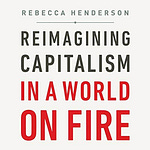"What are the economic consequences of an influenza pandemic? And given the pandemic, what are the economic costs and benefits of non-pharmaceutical interventions (NPI)?" In a recently published economics paper, Prof. Emil Verner and his co-authors find that cities that intervened earlier and more aggressively in the 1918 Spanish Flu did not perform worse and, if anything, grew faster after the pandemic was over. Their findings thus indicate that NPIs not only lower mortality; they may also mitigate the adverse economic consequences of a pandemic. The paper is titled "Pandemics Depress the Economy, Public Health Interventions Do Not: Evidence from the 1918 Flu," and it provides crucial justification for the current social distancing measures and guidance on how we should handle this current Covid-19 crisis. In this interview, we ask Prof. Verner about his research methodology, why the 1918 Flu serves as a reliable comparison with the coronavirus outbreak, what recovery measures can be taken after the shutdown ends, and other important debates related to the economics of this crisis. Prof. Emil Verner is an Assistant Professor of Finance at the MIT Sloan School of Management. His current research focuses on the connection between financial markets and economic activity, both in advanced and emerging markets. In several recent studies, he has examined the role of household credit markets in amplifying business cycle fluctuations. In related work, Prof. Verner has also studied the real economic consequences of banking sector distress during financial crises around the world over the past 150 years. Finally, in ongoing research, Prof. Verner is currently exploring what role financial distress has played in the recent rise in populism.
© 2024 Tiger Gao
Substack is the home for great culture














Share this post